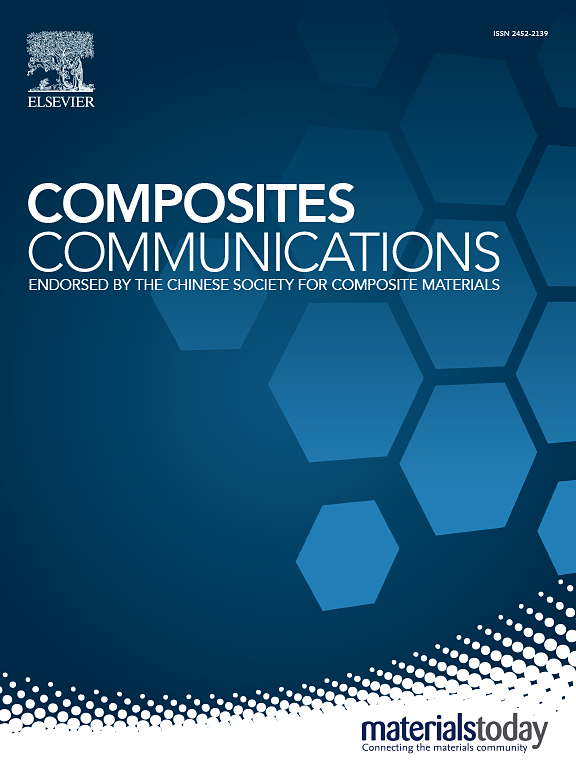Study of microscale heat transfer in UHTCMCs based on deep learning and finite element analysis
IF 7.7
2区 材料科学
Q1 MATERIALS SCIENCE, COMPOSITES
引用次数: 0
Abstract
The microstructure of ultra-high temperature ceramic matrix composites (UHTCMCs) is extremely complex, making it particularly challenging to conduct precise heat transfer analysis that accurately reflects the material's true structural features due to their heterogeneous multiphase characteristics. In this study, we propose a heat transfer model that combines deep learning with finite element analysis, which is used for feature extraction and heat transfer analysis of the microstructure of ultra-high temperature ceramic matrix composites, allowing for the calculation of effective thermal conductivity to predict the material's macroscopic thermal conductivity. Microstructural feature recognition is achieved by segmenting the phase structure of ultra-high temperature ceramic matrix composites using the BSE/EDS images, through the construction of the Unet deep learning model. Additionally, the structural mapping mesh method is employed to convert the actual structural information of the reactive material into a finite element mesh model for a detailed analysis of its micro-scale heat transfer characteristics. The macroscopic thermal conductivities of the materials are obtained by statistically calculating the thermal conductivities of the microscopic sections, showing consistency with the thermal conductivities from the theoretical model and the experiment. This study effectively reveals the heat transfer characteristics from the complex microstructure of UHTCMCs.
基于深度学习和有限元分析的 UHTCMC 微尺度传热研究
超高温陶瓷基复合材料(UHTCMC)的微观结构极其复杂,由于其异质多相的特点,要进行精确的传热分析以准确反映材料的真实结构特征尤其具有挑战性。在本研究中,我们提出了一种将深度学习与有限元分析相结合的传热模型,用于超高温陶瓷基复合材料微观结构的特征提取和传热分析,从而计算有效热导率,预测材料的宏观热导率。通过构建 Unet 深度学习模型,利用 BSE/EDS 图像分割超高温陶瓷基复合材料的相结构,从而实现微观结构特征识别。此外,还采用了结构映射网格方法,将反应材料的实际结构信息转换为有限元网格模型,以详细分析其微观传热特性。通过统计计算微观截面的导热系数,得到材料的宏观导热系数,显示出与理论模型和实验导热系数的一致性。这项研究有效地揭示了 UHTCMC 复杂微观结构的传热特性。
本文章由计算机程序翻译,如有差异,请以英文原文为准。
求助全文
约1分钟内获得全文
求助全文
来源期刊

Composites Communications
Materials Science-Ceramics and Composites
CiteScore
12.10
自引率
10.00%
发文量
340
审稿时长
36 days
期刊介绍:
Composites Communications (Compos. Commun.) is a peer-reviewed journal publishing short communications and letters on the latest advances in composites science and technology. With a rapid review and publication process, its goal is to disseminate new knowledge promptly within the composites community. The journal welcomes manuscripts presenting creative concepts and new findings in design, state-of-the-art approaches in processing, synthesis, characterization, and mechanics modeling. In addition to traditional fiber-/particulate-reinforced engineering composites, it encourages submissions on composites with exceptional physical, mechanical, and fracture properties, as well as those with unique functions and significant application potential. This includes biomimetic and bio-inspired composites for biomedical applications, functional nano-composites for thermal management and energy applications, and composites designed for extreme service environments.
 求助内容:
求助内容: 应助结果提醒方式:
应助结果提醒方式:


